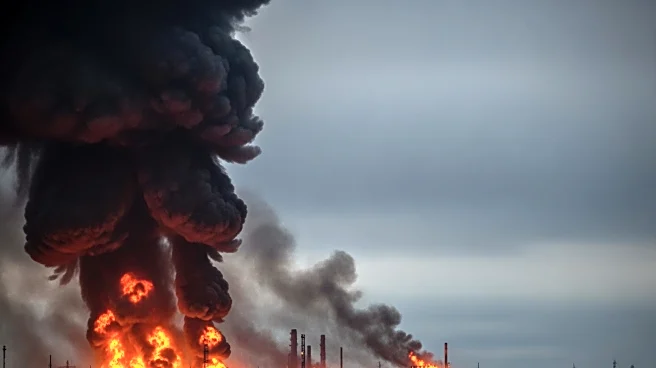What's Happening?
Ukraine's armed forces have launched a drone attack on the oil terminal at the Russian Black Sea port of Tuapse. The attack resulted in damage to the loading facility and two ships docked at the pier. The strike involved long-range aerial UAVs, which
have been used by Ukraine to target Russian oil and gas infrastructure. The attack led to fires on the pier and vessels, confirmed by NASA's fire detection data. The terminal, operated by Rosneft, has a significant capacity and the attack has caused a substantial oil spill in the nearby waters.
Why It's Important?
The attack on the Tuapse oil terminal highlights the ongoing conflict between Ukraine and Russia, with significant implications for the global energy market. The damage to the terminal could disrupt oil shipments, leading to increased insurance premiums and discouraging companies from using the port. This could affect global oil supply chains and potentially increase oil prices. The attack also underscores the strategic use of drones in modern warfare, raising concerns about the security of critical infrastructure worldwide.
What's Next?
The attack may lead to heightened tensions between Ukraine and Russia, with potential retaliatory actions from Russia. The international community may respond with diplomatic efforts to de-escalate the situation. Companies involved in shipping and oil trade may reassess their operations in the region, considering the increased risks. The incident could also prompt discussions on international regulations regarding the use of drones in warfare.
Beyond the Headlines
The use of drones in this attack raises ethical and legal questions about modern warfare tactics. The ability to strike from a distance with minimal risk to personnel could change the nature of military engagements. Additionally, the environmental impact of the oil spill could have long-term effects on the local ecosystem, prompting discussions on the environmental consequences of military actions.

















